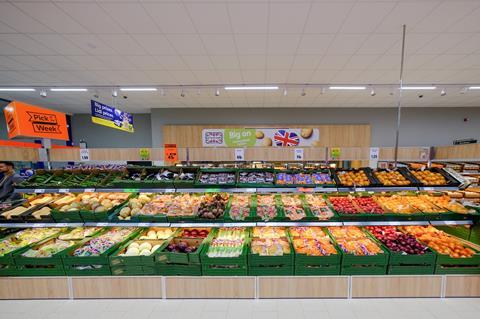Lidl GB has promised to find ways to accommodate ’stunted crops’ within existing lines to prevent food waste

Lidl GB has promised to support its UK fresh fruit and vegetable suppliers by helping them deal with large quantities of stunted crop brought about by recent hot, dry weather.
The discounter today (25 August) wrote to all of its British fresh produce suppliers pledging to look for ways to ensure that high quality British crops don’t go to waste. Lidl said it will work closely with suppliers to identify key crop challenges and, where possible, work to accommodate these products within its existing lines.
Ryan McDonnell, Lidl GB CEO, said: “Farmers across the country are facing a big challenge this year due to the extreme weather conditions experienced over the summer months. Whilst the crop coming out may look and feel a bit different to what we’re all used to, it’s still the same great British quality. We therefore want to show support for our suppliers by working with them to find solutions to help.
“Lidl is built on the foundation of making good food accessible and affordable to everyone, and our fresh produce range is key to achieving this,” he continued. ”Whilst some supermarkets have chosen to create a separate ‘wonky veg’ label for items that don’t quite fit a certain specification, we don’t believe in a creating a false market. Instead, we have always strived to work collaboratively with our suppliers to ensure that we are flexible with variations in specifications at different times of the year.
”However, now, more than ever, it’s critical that we and the rest of the sector get behind our suppliers. That’s why we have written to all of our British fresh produce suppliers, and I would urge other supermarkets to do the same, so that together we can ensure that perfectly good produce isn’t going to waste.”
Lidl has also committed to funding and implementing 10 whole chain food waste projects by 2025, to work with suppliers to find further solutions to reducing waste and creating additional value in the supply chain.



